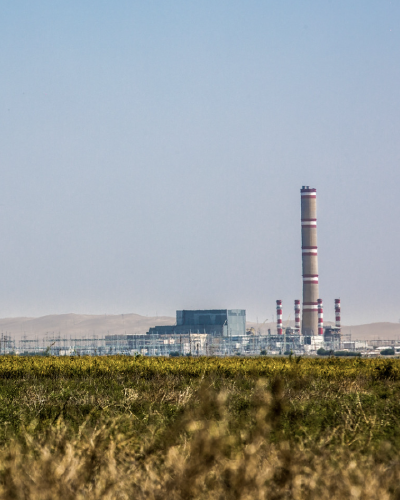Uzbekistan flipped the switch on its power sector through reforms that encourage private investments to modernize power infrastructure and by reviewing policies to make way for independent energy regulation and a weather-resilient power system.
Listen to the story
an aging power sector, but one with promise
Uzbekistan once enjoyed strong economic growth, averaging over 7% annually in the early 2010s. The economic downturn of 2015—marked by falling commodity prices and stagnation among its trading partners—slowed this momentum. By 2017, economic growth had dipped to 4.5%.
Determined to build resilience, the government launched sweeping economic reforms around foreign exchange and taxation, fiscal management, and state-owned enterprises. The reforms paid off, allowing Uzbekistan to sustain growth even through the economic shocks from the COVID-19 pandemic.
At the heart of this resilience is the power sector—a critical driver of economic stability and growth. However, aging transmission and distribution networks struggle to meet Uzbekistan’s rising energy demand.
Adding to the challenge is the country’s reliance on fossil fuels, a model that is both financially and environmentally untenable. With the energy demand projected to double by 2030, the government has set an ambitious goal—investing over $36 billion in new generation capacities and grid enhancements.
reform and modernization
To support these efforts, ADB—with partner Agence Francaise de Developpement—supported the Power Sector Reform Program, which aimed to modernize the power sector by encouraging private investments, improving regulatory frameworks, and promoting renewable energy to enhance energy efficiency and reduce carbon emissions.
The reform program is divided into two subprograms, the first one approved in 2020 and the second in 2024. Both are structured around four key pillars:
- Restructuring and Regulation. This is the most critical reform area of the program and focuses on basic policies, legislation, and strategies to bring the sector structure, governance, competition, and roles and responsibilities of stakeholders in line with the future electricity market model. This includes the creation of the Ministry of Energy; approval of new energy law; liberalizing the electricity market and unbundling generation, transmission, and distribution.
- Financial Sustainability. This includes the establishment of an independent energy regulator governing the sector with key functions of developing market rules and regulations, tariff determination, licensing, and market development. It also includes enhancing collection rates through a nationwide smart metering program, attracting private power producers through public-private partnership or PPP, and decoupling of single buyer and retail business functions.
- Reducing Carbon Intensity. This reform aimed to reduce GHG emissions in the electricity supply chain. The government’s strategy includes approval of an energy sector master plan, establishing law on limiting GHG emissions and amendment to the law on renewable energy use to promote green energy and provide necessary state support to renewable energy source usage.
- Improving Energy Efficiency. This focuses on the demand side, with interventions like formulating an energy efficiency road map, modernizing district heating systems, and introducing energy labeling standards, with private sector involvement in modernizing heating infrastructure.
“Investments in energy transition and the modernization of transmission and distribution systems are fundamental to Uzbekistan’s sustainable development.”

lights up for a resilient power sector
In between the two subprograms, ADB and another set of partners—the Cooperation Fund for Project Preparation in the Greater Mekong Subregion and in Other Specific Asian Countries and the Republic of Korea e-Asia and Knowledge Partnership Fund—supported the technical assistance (TA) Power Sector Reform Support Program. This is a project preparation undertaking to advance sector reforms in support of the second subprogram.
This TA initiative is more than just an infrastructure investment—it is a catalyst for innovation, sustainability, and economic transformation. It contributes to the larger sector reform program by accomplishing several outputs.
For one, the project will finance technical and legal studies and policy advice to develop legislation in support of independent energy regulation. It will also encourage sustainability and resilience with investments in power distribution, such as using smart grids to reduce technical losses.
More than collaboration, this approach also helps in innovation. By exploring new public-private partnership modalities, the project aims to produce fresh ideas in energy distribution, ensuring sustained and evolving best practices.
The project will also contribute to climate change mitigation measures for Uzbekistan’s commitment to the Paris Agreement by making the network more resilient to climate change.
Lastly, the project will strengthen the sector workforce. Training and capacity-building activities—targeting at least 30% women as participants—will aim to transform the staff capacity in distribution system planning, design, economic analysis, and budgeting to keep the master plan updated and relevant.
With the help of this TA initiative, Uzbekistan is not just reshaping its energy sector but also setting new standards for a sustainable, efficient, and resilient energy future.

